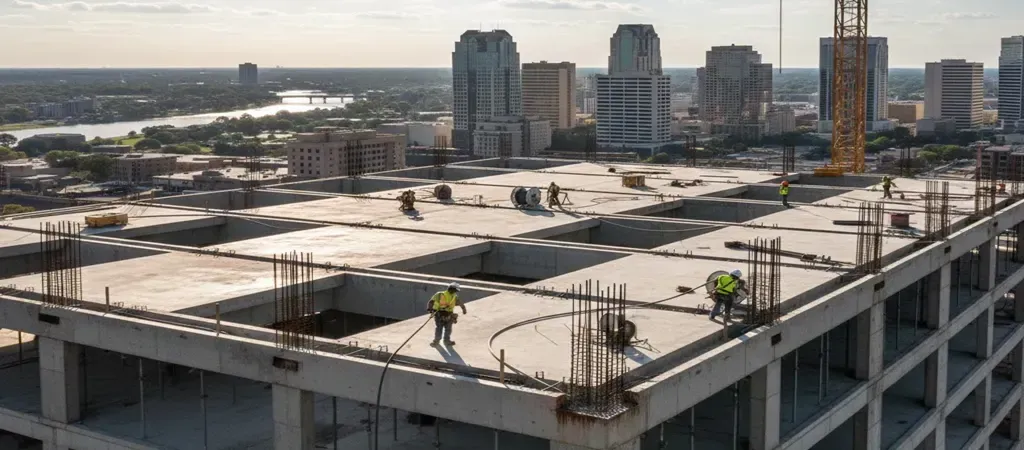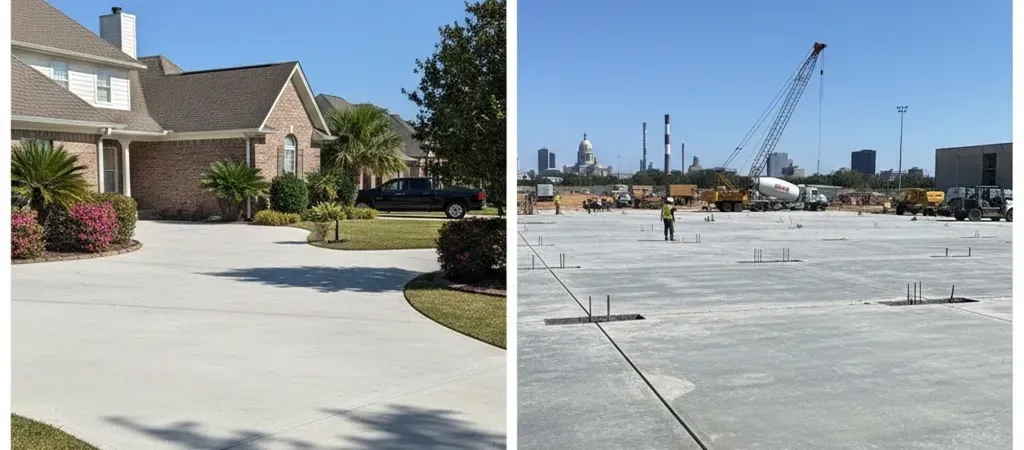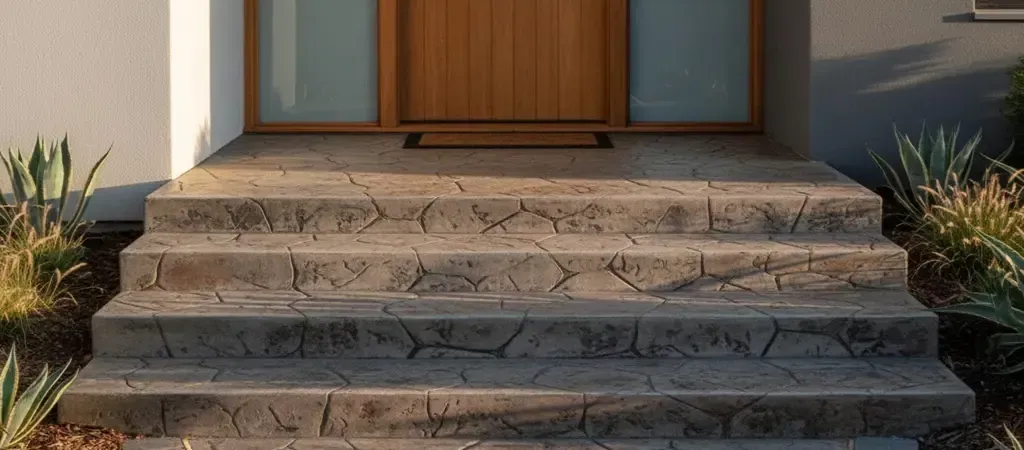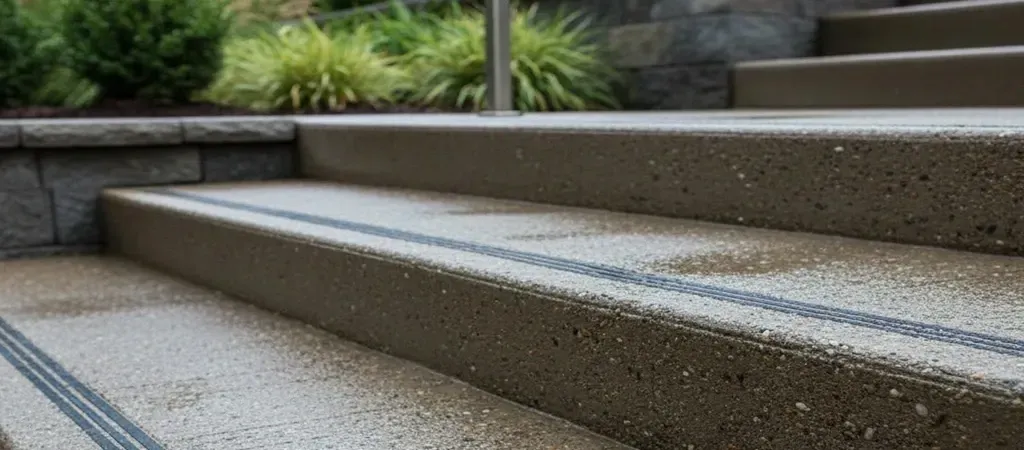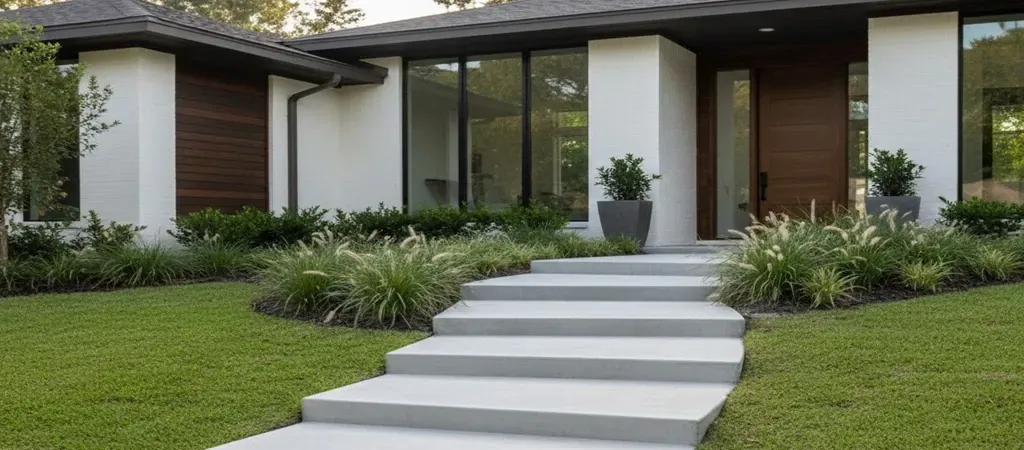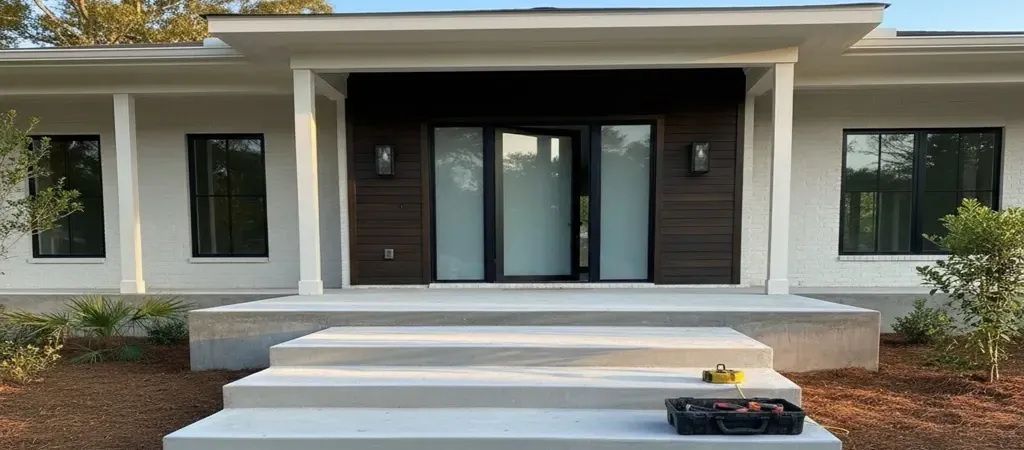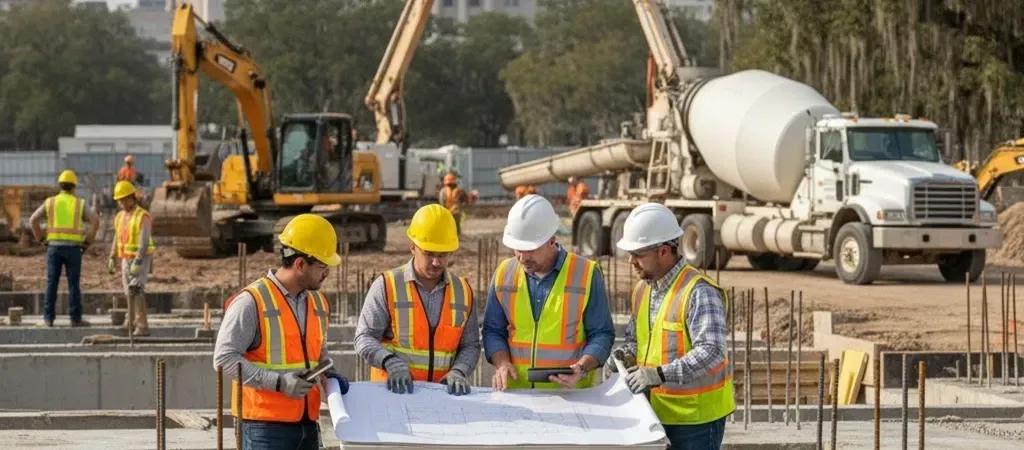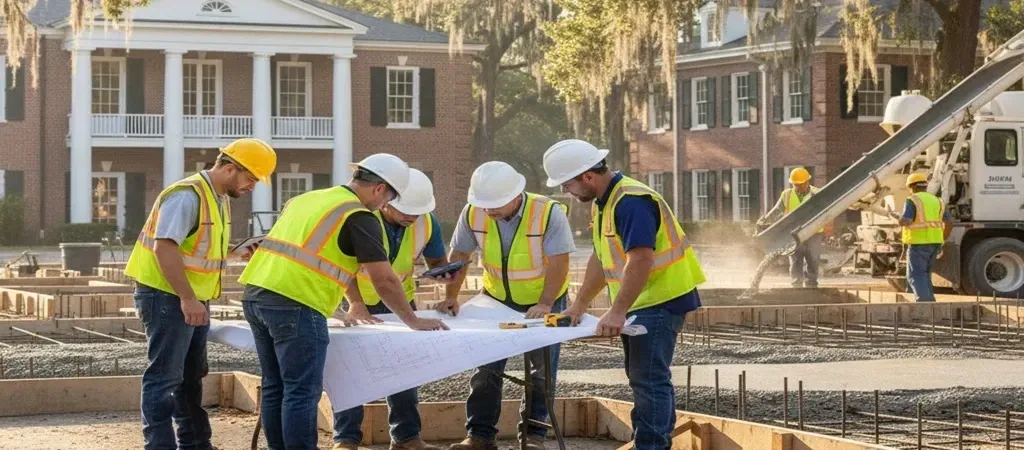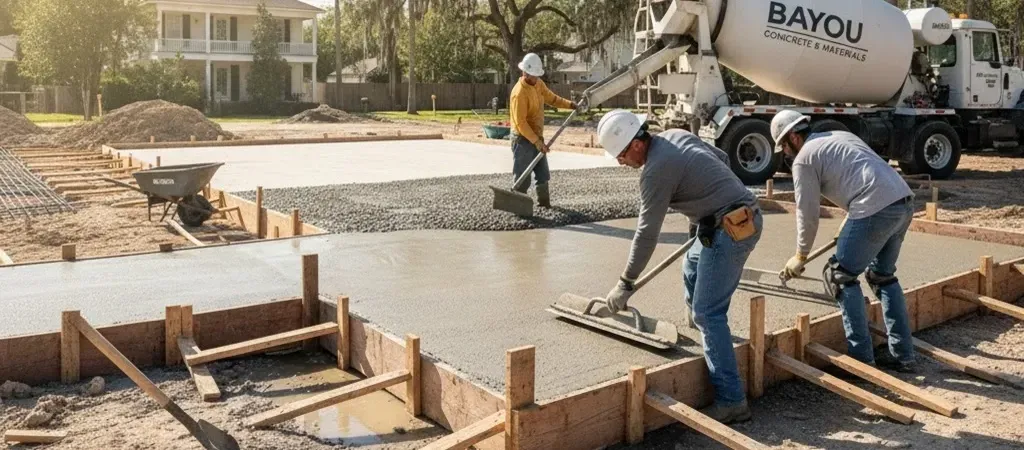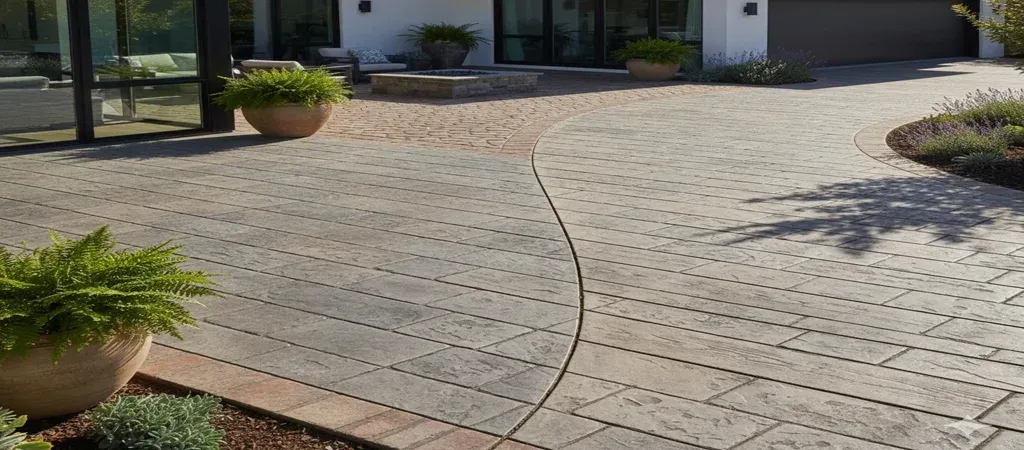Concrete vs. Asphalt: Choosing the Right Material for Your Baton Rouge Driveway
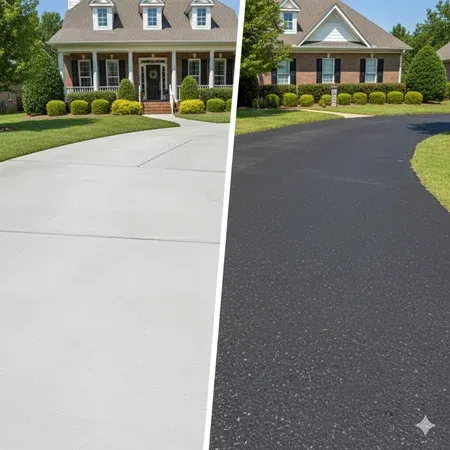
Maybe some of us are wondering why some people prefer concrete, while others choose asphalt. Some think that it is just about preference but in reality, choosing the right material for your driveway is a crucial decision that has a huge impact on the appearance, functionality, and longevity of your home. There are other options aside from concrete and asphalt but in Baton Rouge, the fight between these two is tight. Each material has its unique advantages and disadvantages, particularly in terms of local climate and soil conditions. To provide you with more information on this topic, we will explain the differences between concrete and asphalt driveways. In this article, we will cover different aspects such as durability, maintenance, cost, and environmental impact to guide you in making your decision.
Durability and longevity
If we talk about durability over time, concrete driveways typically last from 30 to 40 years if maintained properly. On the other hand, asphalt driveways have a typical lifespan of 20-30 years with proper maintenance.
Concrete
Concrete driveways are highly resistant to weathering, heavy loads, and erosion. But take note that they can crack over time, particularly if not maintained properly.
Asphalt
Compared to concrete, asphalt driveways are susceptible to softening and cracking under high temperatures. But the good thing is, it is more flexible, which can help it to withstand ground movements and prevent cracking in colder weather.
Maintenance Requirements
Concrete
Concrete driveways need recurrent sealing to prevent cracks and surface damage. Also, it is essential to clean and remove stains from your concrete to maintain their appearance. It requires less frequent maintenance than asphalt but it is necessary to ensure its longevity.
Asphalt
Asphalt driveways require regular sealing every few years to maintain their flexibility and prevent water damage. To prevent further damage, filling cracks and potholes promptly is important. Though asphalt requires more frequent maintenance, it is quicker and more cost-efficient to repair compared to concrete.
Cost Considerations
Concrete driveways may require higher upfront payment due to materials and labor costs. Meanwhile, asphalts are generally budget-friendlier initially, which makes it a good choice for those looking to save initial costs.
Over time, it is considered that concrete is more cost-effective due to its low-maintenance requirement. On the other hand, asphalt driveways may incur higher maintenance costs due to the need for more frequent sealing and repairs.
Climate Suitability
Currently, Baton Rouge faces high temperatures and humidity, with frequent rain and potential flooding. It is important to take note of this matter because it can significantly impact the performance of your driveway materials.
Impact of climate on materials
In terms of suitability in hot climates like Baton Rouge, concrete is better since it is less likely to soften under high temperatures. But remember, it can suffer from surface damage due to water infiltration and freeze-thaw cycles in the rare cold snaps without proper drainage. That is why it is important to seal the concrete regularly to help minimize these issues and to ensure the durability and aesthetics of your concrete.
In terms of the impact of climate on asphalt, it can become soft and sticky in extreme heat, particularly in Baton Rouge. If heavy vehicles are parked on the asphalt, it can lead to ruts and indentations. However, asphalt is more flexible and less likely to crack in cold weather. In this matter, we can say that asphalt is more versatile than concrete. To protect asphalt from heat damage and prolong its lifespan, regular sealing is the best optimal solution.
Design Options
Concrete
There are lots of design options in concrete such as stamped, colored, or polished that can provide different looks. Concrete can mimic stone and brick and provide unique or custom designs. That is why some homeowners prefer concrete as their excellent choice due to its distinctiveness and aesthetic appeal over asphalt
Asphalt
On the other hand, asphalt is typically limited to its standard black finish. This finish can complement many exterior designs but provides fewer options compared to concrete. On the brighter side, enhancements such as seal coating and decorative borders can improve its aesthetic appeal but cannot give the same versatility that concrete can pull off.
Environmental impact
In this matter, concrete has a higher carbon emissions due to the process of cement production. But due to its lifespan, it doesn’t need to be replaced as often, which can balance its environmental impact in the long run. Another positive factor about concrete is they are recyclable by crushing and used as aggregate in new concrete mixes and other construction projects.
Meanwhile, asphalt has a lower initial carbon footprint and is highly recyclable. It can also be incorporated into new asphalt, which reduces waste. However, take note that frequent maintenance and resealing can elevate its environmental impact significantly.
Concrete and Asphalt have their unique characteristics, which provide unique benefits and drawbacks. Remember, the right choice will depend on your specific needs and circumstances. To deeply understand what is best for your situation, seek
professional assistance from those who can provide factual information that can be applied to your case. Experts like
Baton Rouge Concrete Contractors can give the most accurate information based on your needs and circumstances, giving you the best results. Just take time to assess both options carefully, and you will enjoy a beautiful and functional driveway for many years to come.
Contact us
now!
